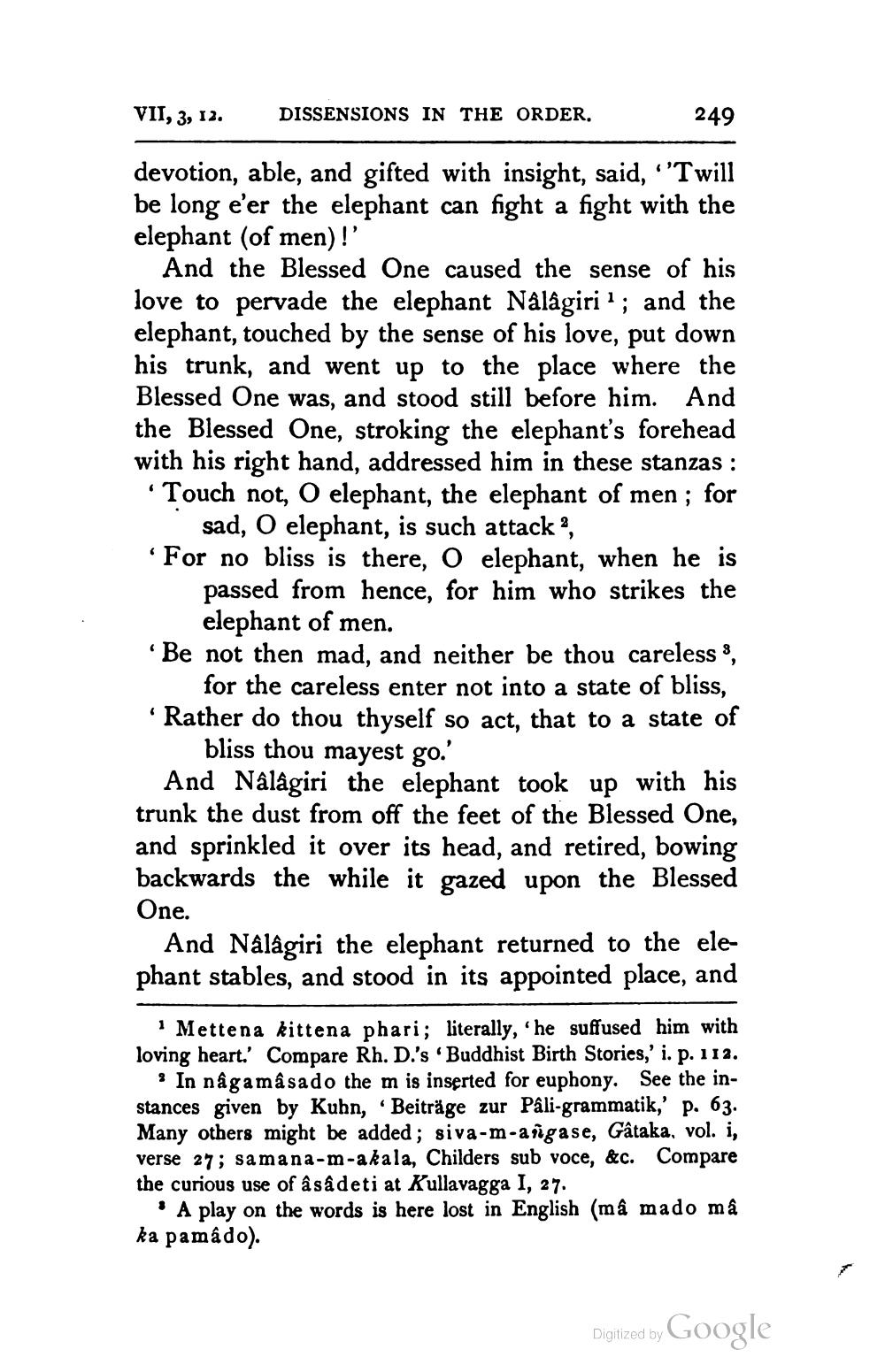________________
VII, 3, 12.
DISSENSIONS IN THE ORDER.
249
devotion, able, and gifted with insight, said, “'Twill be long e'er the elephant can fight a fight with the elephant (of men)!'
And the Blessed One caused the sense of his love to pervade the elephant Nâlâgiri"; and the elephant, touched by the sense of his love, put down his trunk, and went up to the place where the Blessed One was, and stood still before him. And the Blessed One, stroking the elephant's forehead with his right hand, addressed him in these stanzas : Touch not, O elephant, the elephant of men ; for
sad, O elephant, is such attack, For no bliss is there, O elephant, when he is
passed from hence, for him who strikes the
elephant of men. Be not then mad, and neither be thou careless 8,
for the careless enter not into a state of bliss, Rather do thou thyself so act, that to a state of
bliss thou mayest go.' And Nâlâgiri the elephant took up with his trunk the dust from off the feet of the Blessed One, and sprinkled it over its head, and retired, bowing backwards the while it gazed upon the Blessed One.
And Nålâgiri the elephant returned to the elephant stables, and stood in its appointed place, and
· Mettena kittena phari; literally, he suffused him with loving heart. Compare Rh. D.'s 'Buddhist Birth Stories,' i. p. 112.
* In nâgamâsado the m is inserted for euphony. See the instances given by Kuhn, Beiträge zur Páli-grammatik,' p. 63. Many others might be added; siva-m-aigase, Gâtaka, vol. i, verse 27; samana-m-akala, Childers sub voce, &c. Compare the curious use of âsâdeti at Kullavagga I, 27.
• A play on the words is here lost in English (mâ mado mâ ka pamado).
Digitized by Google




